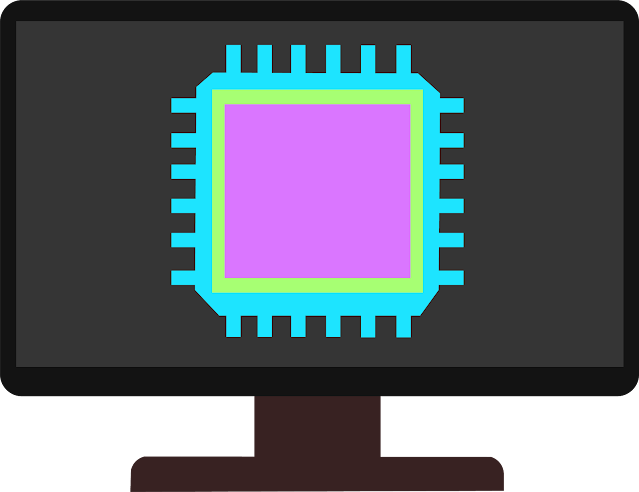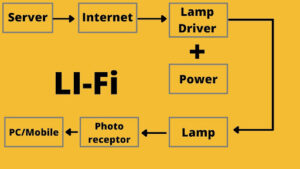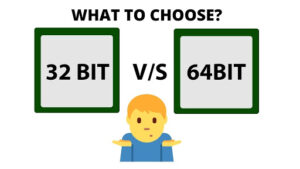How to choose the right CPU for your PC
At present, computers are not limited to
just offices or scientific research centres. Mobile phones are also a type of
computer, laptops are also called a computer, and even tablet is also a kind of
computer. In a word, the electronic device that takes some input then
processes it and then makes an output, is called a computer. A small-weight
machine is also a computer.
just offices or scientific research centres. Mobile phones are also a type of
computer, laptops are also called a computer, and even tablet is also a kind of
computer. In a word, the electronic device that takes some input then
processes it and then makes an output, is called a computer. A small-weight
machine is also a computer.
In most
cases, computers are available for use by big companies which are pre-assembled.
But when we go to buy a desktop computer, which is not pre-assembled, we find
ourselves having to choose different parts of the computer. And many times we
make mistakes in choosing these parts. Although the shopkeeper gives us some
suggestions, still we buy other parts without our need.
cases, computers are available for use by big companies which are pre-assembled.
But when we go to buy a desktop computer, which is not pre-assembled, we find
ourselves having to choose different parts of the computer. And many times we
make mistakes in choosing these parts. Although the shopkeeper gives us some
suggestions, still we buy other parts without our need.
If you
want to see the main part of a computer, then it is its processor, where all
the input processes and all the calculations are done. We have to be very
careful when choosing this processor because we will not be able to do our job
correctly in the future if we choose the wrong processor. That is why we have
to first look at what we need and then choose our processor accordingly.
want to see the main part of a computer, then it is its processor, where all
the input processes and all the calculations are done. We have to be very
careful when choosing this processor because we will not be able to do our job
correctly in the future if we choose the wrong processor. That is why we have
to first look at what we need and then choose our processor accordingly.
If we go back several
years ago, INTEL is the only company whose market value was higher in terms of
processors. Although there was another company called AMD at that time, their
processes were a little overheated during the process, and they consumed a lot
of energy and waste. That’s why they didn’t have much market value at that
time. But several years ago, in March 2016 AMD launched their new processor called
Ryzen. These processors are much less heated than the previous processors, so
they consume less power and they are almost half of the price compared with
INTEL with almost the same technology. AMD surprises all computer customers as
well as, and AMD also surprised the PC industry. As a result, their market value has
increased a lot in the market but still, they have not come close to Intel. However,
as they move forward, experts feel that AMD may overtake INTEL within the next
few years. After learning about this short history of AMD, we will know how to
choose the right processor for our needs.
years ago, INTEL is the only company whose market value was higher in terms of
processors. Although there was another company called AMD at that time, their
processes were a little overheated during the process, and they consumed a lot
of energy and waste. That’s why they didn’t have much market value at that
time. But several years ago, in March 2016 AMD launched their new processor called
Ryzen. These processors are much less heated than the previous processors, so
they consume less power and they are almost half of the price compared with
INTEL with almost the same technology. AMD surprises all computer customers as
well as, and AMD also surprised the PC industry. As a result, their market value has
increased a lot in the market but still, they have not come close to Intel. However,
as they move forward, experts feel that AMD may overtake INTEL within the next
few years. After learning about this short history of AMD, we will know how to
choose the right processor for our needs.
1. Daily life tasks: – Today,
it is almost impossible to do some daily tasks without a computer, such as
using the Internet, sending emails, typing, printing, and so on. These tasks
require very little computing power. Although there are mobile phones of the
present age, these things can be done very easily. But on a computer, you get a
lot of conveniences. Where it is not possible to give all those features on mobile. So if you want to do this kind of work, you can take any of the basic
dual-core or quad-core processors whose clock speed can go up to 3GHZ. It could
be any company like INTEL or AMD.
it is almost impossible to do some daily tasks without a computer, such as
using the Internet, sending emails, typing, printing, and so on. These tasks
require very little computing power. Although there are mobile phones of the
present age, these things can be done very easily. But on a computer, you get a
lot of conveniences. Where it is not possible to give all those features on mobile. So if you want to do this kind of work, you can take any of the basic
dual-core or quad-core processors whose clock speed can go up to 3GHZ. It could
be any company like INTEL or AMD.
2. In the multimedia world: – Whenever
we talk about the world of multimedia, we first come to mind movies or
videos, audio songs, pictures, animations, etc. And to do these things, the
computing power of the processor needs to be high. Therefore, in the process of
doing these tasks, the processor should be chosen as much as the core of the
processor. For example, a processor that has four cores will be able to do
more work than another processor that has two cores. If you want to do more
work at the same time, that is, if you want to keep the computing power more,
then you must take the processor with more core numbers.
we talk about the world of multimedia, we first come to mind movies or
videos, audio songs, pictures, animations, etc. And to do these things, the
computing power of the processor needs to be high. Therefore, in the process of
doing these tasks, the processor should be chosen as much as the core of the
processor. For example, a processor that has four cores will be able to do
more work than another processor that has two cores. If you want to do more
work at the same time, that is, if you want to keep the computing power more,
then you must take the processor with more core numbers.
3. Generation: – As
the processor’s generation of computers grows, the processor gradually improves.
A processor company will make their processor with more advanced technology
than the technology that made them processors in the first generation.
Otherwise, the processor will have no market value. That means when you go to
buy a PC processor, if you have the right amount of budget, then you must try
the latest generation processor. Because this processor will come with the
ability to do many more things in the future. It also has to look at how many
nanometers of the processor is made with the technology. If the technology is
below 20 nanometers, then the processor can be taken, but if that processor goes
above 20 nanometers, then it is better not to take that processor.
the processor’s generation of computers grows, the processor gradually improves.
A processor company will make their processor with more advanced technology
than the technology that made them processors in the first generation.
Otherwise, the processor will have no market value. That means when you go to
buy a PC processor, if you have the right amount of budget, then you must try
the latest generation processor. Because this processor will come with the
ability to do many more things in the future. It also has to look at how many
nanometers of the processor is made with the technology. If the technology is
below 20 nanometers, then the processor can be taken, but if that processor goes
above 20 nanometers, then it is better not to take that processor.
4. Clock Speed: – The
higher the clock speed of a processor, the faster it can work. But we need to
keep in mind that the processor’s clock speed is high, and that processor may
not always be able to do all the work immediately. That means that the
processor will be able to perform certain tasks quickly. In most cases, the clock
speed helps to provide the frame rate to the GPU. The higher the processor’s
clock speed, the more power it consumes.
higher the clock speed of a processor, the faster it can work. But we need to
keep in mind that the processor’s clock speed is high, and that processor may
not always be able to do all the work immediately. That means that the
processor will be able to perform certain tasks quickly. In most cases, the clock
speed helps to provide the frame rate to the GPU. The higher the processor’s
clock speed, the more power it consumes.
If you can determine these four
things correctly, you can choose the right processor.
things correctly, you can choose the right processor.






